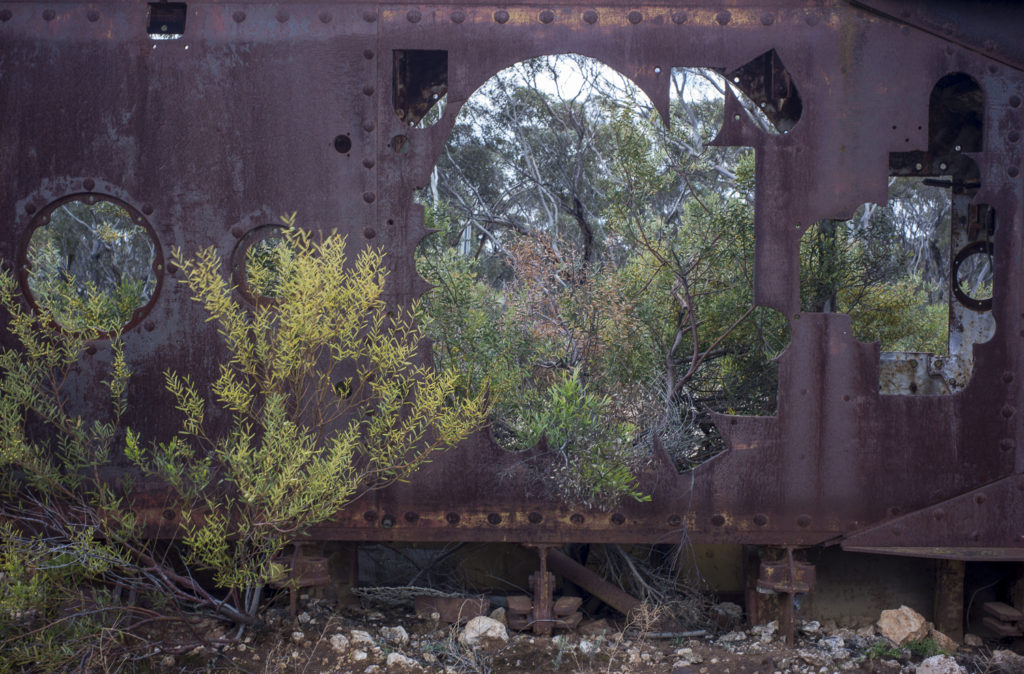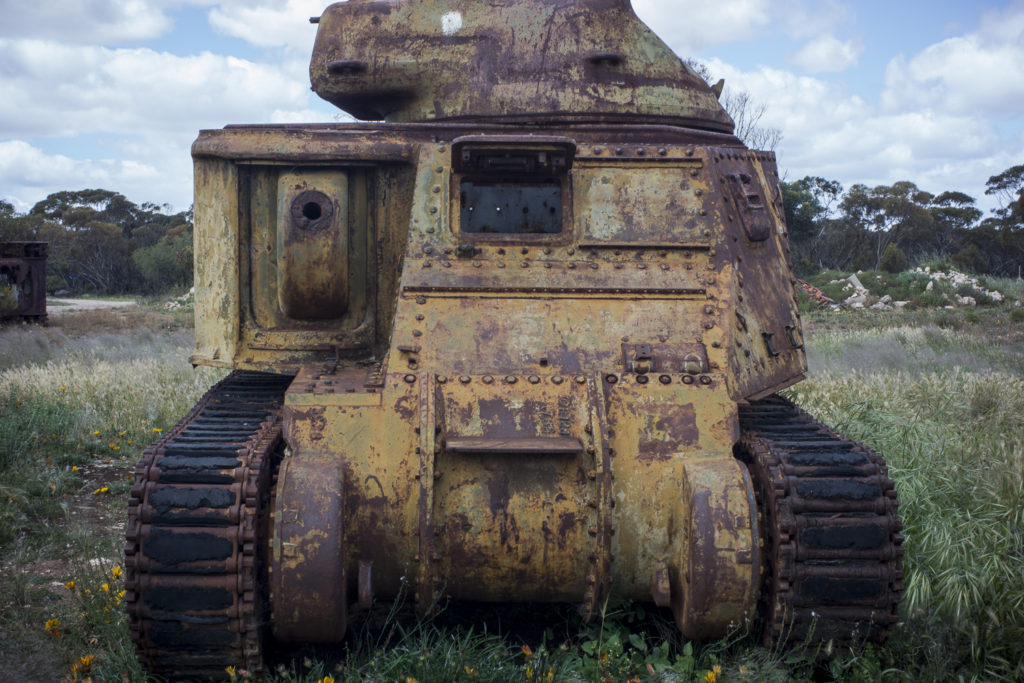I have a phototrip to the Victorian Mallee planned around the 12th-15th November. The trip is in two parts: a camp at Murrayville on the Mallee Highway on my own for two days so that I can continue to work on the silo project and to look around the area for the Mallee Routes project, and then a camp at Hopetoun with Gilbert Roe and Eric Algra so that I can explore the area around the Jeparit/Hopetoun/Sea Lake/ Lake Tyrrell region around the Calder Highway.
I’m going because cloudy conditions are expected in this region of the Victorian Mallee for several days. These kind of conditions are few and far between, as the weather in the Mallee is normally bright, sunny and cloudless, and so not all that suitable for my style of photography.

I briefly walked around Murrayille on my way back from the Lajamanu trip, and it looked to offer photographic possibilities with respect to both the decay and the quirkiness of the Mallee.
The rust, decaying decline is appropriate given the closure of many of the branch rail lines in the Mallee. It implies look back to the past rather than forward to the challenges and opportunities of the future, given that a warmer and drier climate will be a consequence of climate change. However, the past may not be a reliable guide to predicting the future or how too adapt to the accelerating pace of change driven by a global economy.

This region is commonly seen as victims of change they can’t control and don’t possibly have the capacity to deal with. We commonly understand is the region traditionally fares poorly in access to quality services. The real-life result is lower educational achievement, lower incomes, higher rates of unemployment in some regions, proportionately less innovation, poorer health and lower levels of overall wellbeing. This is in contrast to the vision of traditional regional development of larger populations, better access to services and greater industry diversity.
This is a vision that is unattainable for the Mallee regions, particularly small communities in rural areas, and it suggests that traditional regional development is unlikely to bring about the underlying desired outcomes for improved regional well-being.


greetings from hopetoun!
Dorian, did we meet you in the cafe/butcher’s shop at Hopetown on morning when I was talking photos of the coffee mug with a medium format camera?